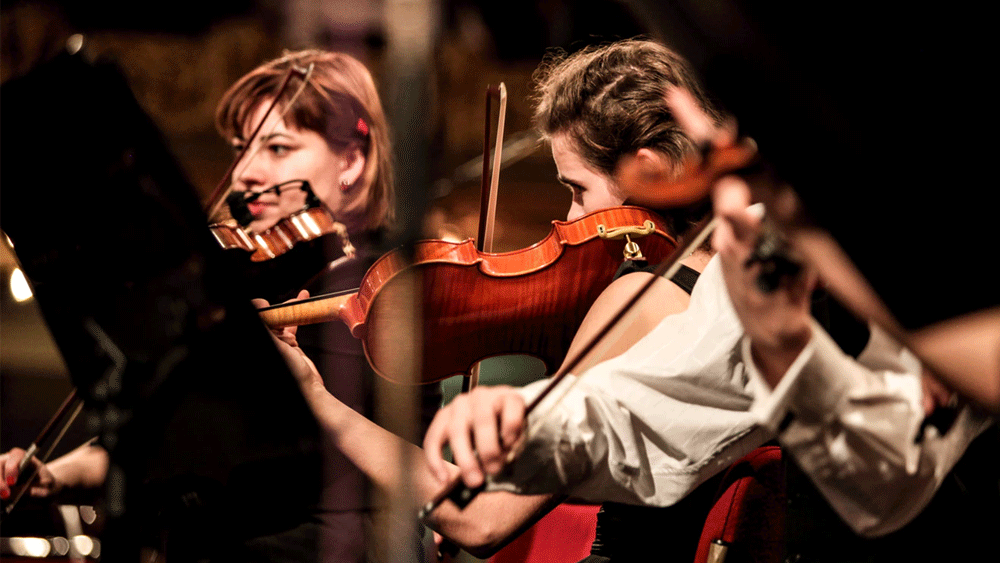When M Magazine caught up with PRS chief executive Andrea Czapáry Martin in May last year, the COVID-19 pandemic was still in its infancy, but the future of the live music industry looked bleak.
Fast forward 12 months and, with incredibly cautious optimism, the sector is taking its first steps towards normality, with festivals and live shows planned across the UK this summer.
But how has a year without live music impacted the collection and distribution of royalties, and how has the surging demand for online entertainment changed the way revenue is generated?
Following the release of PRS’ 2020 financial results, we spoke to Andrea once again to find out.
'The exact financial impact moving forward is extremely difficult to predict. It is important for us to continually review the situation we’re in, taking positive action to safeguard royalties and mitigate risk wherever possible.'
A record £699.4m in music royalties was distributed to songwriters, composers and music publishers in 2020. Does this mean that the worst is yet to come for creators?
2020 was an extremely difficult year for us all, from both a personal and professional perspective. The songwriter, composer and publisher communities we represent suffered enormously due to the impact of COVID-19, with many financially relying on royalties more than ever. Through bolstering data processing to pay out royalties as quickly as possible and setting strong operational foundations in 2019, we were able to react quickly and robustly when the pandemic struck, and that really helped us achieve this result.
The tireless work and dedication of PRS for Music staff throughout the pandemic has been remarkable. They pulled out all the stops while working remotely to achieve this record distribution to members, a year-on-year increase of 2 percent, during a period of significant disruption.
With that being said, we cannot ignore the ongoing implications of the past year on the music industry. Many of the royalties paid out last year were collected before the first lockdown, so we are likely to see a sharp decline in income felt by music creators throughout 2021 and beyond, distributions are expected to fall by at least 10 percent compared to 2019 levels.
The exact financial impact moving forward is extremely difficult to predict. It is important for us to continually review the situation we’re in, taking positive action to safeguard royalties and mitigate risk wherever possible.
What are the key factors that impacted the results for 2020?
In 2020, we saw declines across several of our revenue sources. The most significant decline was from live performances of music, falling by 79.1 percent to just £11.3m. So many events were cancelled or postponed, including major festivals such as Glastonbury and high-profile tours from the likes of Stormzy and Harry Styles.
Public Performance revenue was down 61.2 percent year-on-year, due to the closure of shops, cinemas, pubs, clubs, hotels and restaurants and more, with hospitality and nightlife industries amongst the worst affected. Our policy is to only charge businesses when they are open and able to play music, which in turn impacted royalty collections. But payment holidays and pauses on invoicing for those impacted by enforced closures provided much needed relief to customers, particularly small businesses.
International continues to be the largest revenue stream for members, reinforcing the enduring popularity of British music globally. However, we still saw a 10.7 percent decline on a constant currency basis, with a total of £248.6m collected from around the world. The closure of the tourism industry was a factor in the decline. For example, as cruise ships were not operating last year, royalty collections in this market reduced by 75 percent.
Overall, revenue from UK broadcasters remained relatively stable over the year, seeing only a 2.6 percent decline from £130.8m to £127.4m.
Were there any areas of revenue that saw growth in 2020? If so, why do you think this is?
Online was the only area where we saw growth, rising to £188.3m, 5.1 percent up compared to 2019. As well as increased revenues collected, distributions from online also saw the biggest rise at 63.2 percent over 2019.
Subscriptions and film rentals rose during lockdown, leading to revenue generated from music used across TV and film on-demand platforms like Netflix and Amazon Prime rising by 29.4 percent over 2019.
Music played on streaming platforms like Spotify also contributed to the growth in overall online revenue. PRS for Music members featured on many of the most streamed hits of the year, including Don’t Start Now by Dua Lipa and Head & Heart by Joel Corry ft. MNEK, two of the highest performing songs in the official UK charts in 2020.
In 2020, we licensed over 30 new online platforms, including TikTok and Triller, and we expect royalties to start flowing through to members for the first-time next year. A sharp rise in the popularity of livestreamed concerts and growth in online gaming platforms, will also create new revenue streams for members in 2021.
This online growth is also reflected in the rapid increase and vast volumes of data we process, both in-house and through our joint venture partners. We processed 22.4 trillion ‘performances’ of music in 2020. That’s big data. This includes music broadcast on TV and radio, played in business premises and played live around the globe, but is mainly due to the increase in music being played online, and represents a 796 percent increase in the music we process since 2015.
While this is positive news, the growth in online revenues cannot negate the immense loss of income and harm on the whole music industry due to COVID-19, and the livelihoods of those within it.
'The demand for music is strong, if not stronger than ever, and the UK music industry is a success because of the talented and creative people who work in it.'
Tell us a bit about the success of the PRS Emergency Relief Fund - how many musicians were you able to support?
We launched the PRS Emergency Relief Fund in March 2020 to support songwriters and composers facing severe financial hardship due to COVID-19. Through the fund, in collaboration with our charity partners PRS Members’ Fund and PRS Foundation, we have since paid out over £2.2m across 5,500 grants, something I’m very proud of.
What message do you want to give to PRS members, as the UK begins to open up again and lockdown restriction ease?
Music has played an invaluable role for many of us throughout periods of isolation, providing entertainment, escapism, and connection. The songwriters, composers and publishers we represent are at the heart of this music and they must not be overlooked. As 2021 progresses, the reopening of the live sector must be a priority, and we hope to see the return of festivals and live events in the second half of this year. The demand for music is strong, if not stronger than ever, and the UK music industry is a success because of the talented and creative people who work in it.
2021 will undoubtedly be challenging, but we will continue to do as much as we possibly can to support members during this time.
To find how you can make the most of your PRS membership, including how you can claim unpaid royalties, head to the Webinars section of the PRS for Music website.





